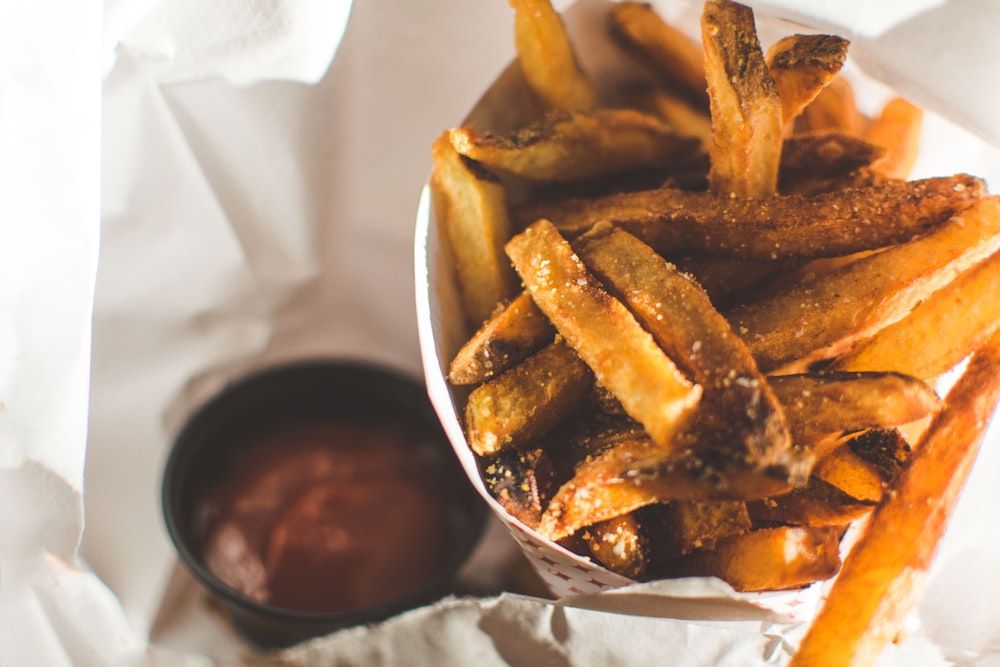 Those cravings you get for sugary or savoury things, are they all in your head- or is your body trying to tell you something? Some might dismiss a ‘wisdom of the body’ theory as quackery. However, if you think about what biological processes are happening in your body and the factors affecting them, the argument to substantiate a link becomes more compelling. Here’s why.
Those cravings you get for sugary or savoury things, are they all in your head- or is your body trying to tell you something? Some might dismiss a ‘wisdom of the body’ theory as quackery. However, if you think about what biological processes are happening in your body and the factors affecting them, the argument to substantiate a link becomes more compelling. Here’s why.
The body is a wonderful machine, constantly sending you signs and signals about the information (or nutrients) it needs to function at its best. Food is so much more than just calories. It’s also sending information to all your cells and helping to direct their activity. The trouble is, when you fall into unhealthy patterns, you unwittingly train your brain and body to think and crave certain foods. Often these foods give you a quick fix. You feel great for 30 minutes, yet an hour later your energy levels are on the floor and you need another hit to keep you going. Sound familiar?
This concept applies to everyone, not just women in pregnancy who are typically associated with an appetite for unusual or inedible substances such as clay, coal or dirt (this type of craving is referred to as ‘pica’ by the way).
Are You Craving Foods High In Sugar And Unhealthy Fats?
One of the most common and documented cravings is of course, sugar. In recent years, articles in the press have suggested sugar is as addictive as class A drugs. How true is that really? Or, have you been simply making excuses for your lack of willpower? You’ll be glad to know there is more to it than meets the eye and it’s not actually your willpower that’s missing.
The brain needs glucose, or sugar, from the right kind of foods to function optimally. Glucose comes from starchy and non-starchy carbohydrates like pasta, bread, vegetables and desserts. When you’re eating in such a way that your body steadily releases glucose into the blood stream throughout the day, this process works as it should. You’re productive, sharp, and full of energy, and you don’t need to rely on willpower to make good food choices.
So, What Causes You To Crave Sugar In The First Place?
Imbalanced biochemistry
Not balancing your biochemistry by having the right distribution of protein, fats and healthy carbohydrates on your plate. I often use a non-invasive genetic test to help identify the ideal ratio, which varies from person to person.
The toxic combination of sugar and unhealthy fat
Too much of the wrong kinds of sugar, as well as fats, can throw things off kilter. Studies have found that increased consumption of sugar and unhealthy fats (like in donuts, chocolate, cake, biscuits and sweets) triggers the release of dopamine, the neurotransmitter associated with feelings of reward and satisfaction. And that means you now need superhuman amounts of willpower to stop eating these foods that give you a temporary high- and we all know how long that will last for….
By falling into this trap, you train your brain to think, ‘I need to eat this to help me feel better’. You might use these foods to regulate your mood and lower your stress. But in the long run, this sends you on a rollercoaster – with your energy, your mood, stress levels and sleep. And over time, this rollercoaster can result in the development of chronic health conditions like diabetes, obesity, inflammation, immune suppression or chronic fatigue.
Processed and energy dense foods like junk food which are high in both fat and sugar have a higher association with food addiction. You never see this combination of high sugar – high fat foods in nature, but food manufacturers are very aware of the addictive quality of this toxic combination and use it to their advantage.
Feeling tired and the role of emotions
You’re also more inclined to eat these kinds of foods when you’re stressed, anxious, or tired, because your brain is looking for more fuel than it would be when you are relaxed and well nourished. What helps a lot of my clients is EFT or tapping, an evidence-based tool I use to help them manage these issues better on their own, so they don’t have to rely on me or anyone else.
If you’re craving sugar or carb-heavy foods you may also be low on serotonin, the neurotransmitter which helps regulate mood and helps keep you feeling positive, giving you sound sleep and days of productivity. Serotonin is made from tryptophan. Tryptophan is an amino acid (or protein) found in almonds, fish, eggs, turkey, pumpkin and sunflower seeds.
The challenging bit here is, that in order for tryptophan to release serotonin, it needs to be coupled with the right amount of carbs because it’s a bit tricky getting it into the brain where it needs to be to exerts its positive effects. Get the wrong amount and it can spike your serotonin for a couple of hours making you feel good- but then send it crashing back down, leaving you feeling moody and emotionally unstable.
Similarly, woman can be more susceptible to sugar cravings around the time of their menstrual cycle. That might not come as a huge surprise to you… studies have shown that higher oestrogen levels are associated with greater levels of the hunger hormone, leptin, which triggers stronger cravings for sugary foods. PMS also causes the stress hormone cortisol to increase and the feel-good hormone serotonin to dip, making you reach for chocolate, chips and sugary snacks to give you a feel-good boost at that time of the month.
What To Do About Your Sugar Craving
Generally, the foods you choose to eat every day can help to regulate or trigger these cravings by helping to balance your biochemistry. Try switching your white bread, pasta, sugary cereals, low fat products and processed foods for lower GL (glycaemic load) alternatives such as wholegrains, pulses, root vegetables and increasing your protein intake at each meal. This can help balance your blood sugar better.
Quality proteins such as eggs, turkey, salmon and nuts and seeds are also rich in tryptophan, which support production of serotonin and dopamine – a much better source than a packet of chocolate digestives or a bag of sweeties. Making the switch to a more wholesome and nourishing alternative may be a much more sustainable approach to healthy weight loss than crazy diets you might be tempted to try.
DO YOU CRAVE SALTY SNACKS?
Sugar doesn’t do it for you? Perhaps you are more inclined to reach for savoury, salty foods; crisps, salted nuts, cheese and biscuits. Generally speaking, this may be a sign that your adrenal glands are under strain, and that hankering for salt could be attributed to stress, fatigue or PMS. You rely on your adrenals to produce the stress hormones cortisol and adrenaline whenever you need it to meet challenging situations. That might mean deadlines at work, training for a marathon or gearing yourself up for a big presentation. The adrenal glands also play a big role in maintaining good energy levels and quality sleep.
Chronic demand on the adrenals due to long-term physiological stress (from over-exercising, medications, high caffeine, sugar, alcohol etc) or psychological stress/anxiety can result in fatigue and insufficient secretion of adrenaline and cortisol, but also the hormones aldosterone, renin and angiotensin which regulate blood pressure by controlling fluid levels and electrolyte balance in the body.
When your adrenals are tired and don’t produce enough aldosterone, your blood pressure can become low and result in salt cravings and these might be accompanied with other symptoms such as fatigue, mood swings including low mood and anxiety, insomnia, brain fog, excessive thirst, headaches and nausea. These are often classic signs of adrenal fatigue, which can result after long periods of psychological/physiological stress which places extra demands on the adrenal glands and results in them ‘burning out’ and not functioning optimally.
Please don’t read this and think that I’m suggesting you need to be consuming salt by the bucket load. Too much sodium (the key element in salt) should be avoided as it can tip the hormone balance in the other direction and contribute to high blood pressure and other cardiovascular issues.
The good news is that the adrenal glands can be supported through nutrition and lifestyle to help rebalance hormones. Working with a Registered Nutritional Therapist can be a powerful way of equipping you with the knowledge to recognise these signs when they present themselves, and make positive changes to benefit your long-term health and well-being. Please contact me for a complimentary 30 minute Wellness Call if you’d like more information: info@yournutritionalhealth.co.uk or on 07812 163 324.


 Those cravings you get for sugary or savoury things, are they all in your head- or is your body trying to tell you something? Some might dismiss a ‘wisdom of the body’ theory as quackery. However, if you think about what biological processes are happening in your body and the factors affecting them, the argument to substantiate a link becomes more compelling. Here’s why.
Those cravings you get for sugary or savoury things, are they all in your head- or is your body trying to tell you something? Some might dismiss a ‘wisdom of the body’ theory as quackery. However, if you think about what biological processes are happening in your body and the factors affecting them, the argument to substantiate a link becomes more compelling. Here’s why.